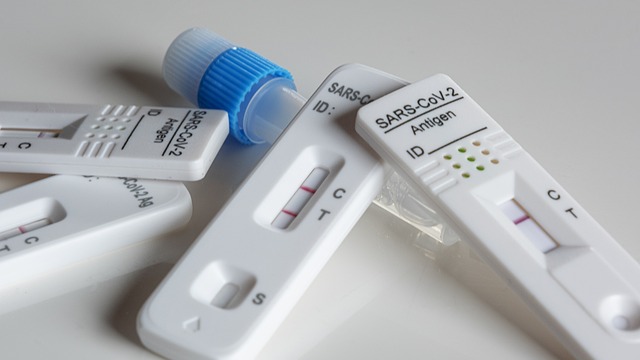A Full body blood test, like CMP or CBC, offers a comprehensive health snapshot by evaluating red/white blood cells, electrolytes, enzymes, and more. These tests detect early signs of diseases like cardiovascular issues, diabetes, and certain cancers, empowering healthcare professionals to provide timely prevention or treatment. Regular follow-up tests ensure continuous health management.
“Uncover the power of early disease detection with a comprehensive full body blood test—a game-changer in preventive healthcare. This insightful article guides you through the process, from understanding the basics of what these tests entail and their significance in identifying potential health risks to decoding key metrics and navigating post-test actions. Discover how a simple blood analysis can provide invaluable insights into your overall health and well-being.”
- Understanding Full Body Blood Tests: What They Are and Why They Matter
- Unveiling Early Disease Detection: The Power of Comprehensive Lab Analysis
- Key Metrics to Look Out For: Decoding the Results
- Navigating Next Steps: Post-Test Actions for Optimal Health Management
Understanding Full Body Blood Tests: What They Are and Why They Matter
A Full body blood test, also known as a comprehensive metabolic panel (CMP) or complete blood count (CBC), is more than just a routine check-up. It’s a powerful tool that provides a detailed snapshot of your overall health and can help detect potential diseases at their early stages. This test evaluates various systems in your body by measuring the levels of different cells, proteins, and chemicals in your blood.
By analyzing everything from red and white blood cells to electrolytes and enzymes, full body blood tests can uncover subtle imbalances or abnormalities that might indicate underlying health issues. From kidney function and liver health to diabetes and inflammation, these tests offer a comprehensive view, enabling healthcare professionals to make informed decisions about your well-being and recommend appropriate actions for prevention or early treatment.
Unveiling Early Disease Detection: The Power of Comprehensive Lab Analysis
Unveiling Early Disease Detection: The Power of Comprehensive Lab Analysis
In today’s digital era, where health awareness is at an all-time high, individuals are increasingly seeking proactive measures to safeguard their well-being. A game-changer in this regard is the full body blood test, offering a profound glimpse into one’s overall health. This comprehensive lab analysis goes beyond routine checks, delving into various aspects of bodily functions and providing valuable insights into potential disease risks. By examining a wide range of markers, from inflammatory indicators to nutrient levels, healthcare professionals can identify subtle changes that may indicate the early stages of conditions like cardiovascular diseases, diabetes, or even certain types of cancer.
Early detection is often considered a cornerstone of successful treatment, as it enables timely intervention and significantly improves outcomes. The full body blood test acts as a vigilant guardian, revealing hidden clues that might otherwise go unnoticed. This strategic approach to wellness empowers individuals to take charge of their health, fostering a proactive mindset that can lead to better quality of life and enhanced longevity.
Key Metrics to Look Out For: Decoding the Results
A full body blood test offers a comprehensive insight into your overall health, providing key metrics that can detect potential diseases in their early stages. When interpreting the results, it’s crucial to focus on several vital markers. One of the primary indicators is your total cholesterol level; elevated LDL (bad) cholesterol is linked to cardiovascular risks, while optimal HDL (good) cholesterol contributes to heart health. Triglycerides, another essential fat in your blood, can also signal metabolic issues or inflammation if their levels are high.
Additionally, paying attention to your red and white blood cell counts is vital. A drop in red blood cells might indicate anemia, while an unusual rise in white blood cells could suggest an underlying infection or chronic condition. Platelet levels play a significant role in coagulation and clotting; imbalances here may increase the risk of bleeding disorders or blood clots. Moreover, checking for markers like C-reactive protein (CRP) can help identify inflammation in the body, which is often associated with various diseases.
Navigating Next Steps: Post-Test Actions for Optimal Health Management
After receiving your full body blood test results, the next steps are crucial for maintaining and optimizing your health. It’s important to discuss the findings with your healthcare provider who can offer tailored advice based on the specific markers identified. They will help interpret the results, explaining what each value means and whether it falls within a healthy range. This conversation is key to understanding potential areas of concern and taking appropriate action.
For instance, if certain indicators suggest early signs of disease or imbalances, your doctor might recommend lifestyle modifications such as dietary changes, increased physical activity, or stress management techniques. In some cases, further specialized testing or referrals to other healthcare specialists may be advised. Regular follow-up tests can then be scheduled to monitor any changes and ensure optimal health management over time.
A full body blood test is a powerful tool for proactive health management, offering early insights into potential diseases. By analyzing various metrics, these tests provide a comprehensive overview of overall well-being. Decoding the results allows individuals to take informed actions, ensuring optimal health and peace of mind. Embracing this preventive approach can lead to timely interventions and improved quality of life.
